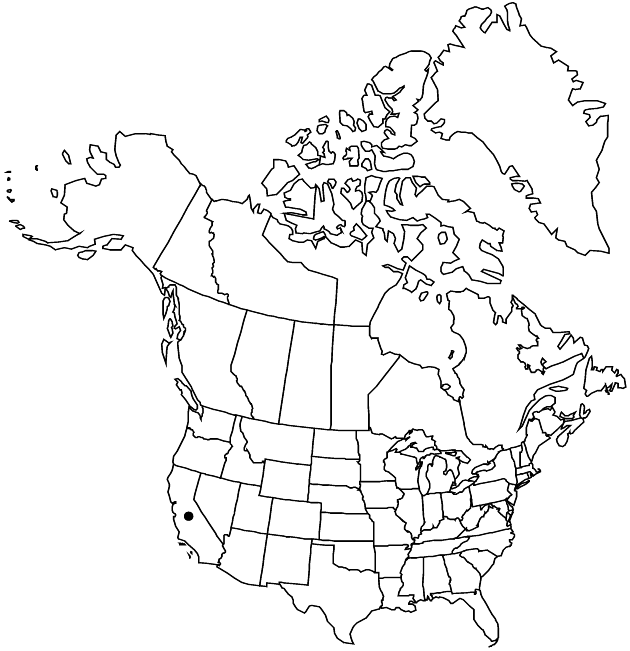Difference between revisions of "Malacothrix foliosa"
in A. Gray et al., Syn. Fl. N. Amer. ed. 2, 1: 455. 1886.
FNA>Volume Importer |
imported>Volume Importer |
||
| Line 8: | Line 8: | ||
}} | }} | ||
|common_names=Leafy desertdandelion | |common_names=Leafy desertdandelion | ||
| + | |special_status={{Treatment/ID/Special_status | ||
| + | |code=E | ||
| + | |label=Endemic | ||
| + | }} | ||
|basionyms= | |basionyms= | ||
|synonyms= | |synonyms= | ||
| Line 70: | Line 74: | ||
|publication title=in A. Gray et al., Syn. Fl. N. Amer. ed. | |publication title=in A. Gray et al., Syn. Fl. N. Amer. ed. | ||
|publication year=1886 | |publication year=1886 | ||
| − | |special status= | + | |special status=Endemic |
| − | |source xml=https:// | + | |source xml=https://bibilujan@bitbucket.org/aafc-mbb/fna-data-curation.git/src/bb6b7e3a7de7d3b7888a1ad48c7fd8f5c722d8d6/coarse_grained_fna_xml/V19-20-21/V19_469.xml |
|tribe=Asteraceae tribe Cichorieae | |tribe=Asteraceae tribe Cichorieae | ||
|genus=Malacothrix | |genus=Malacothrix | ||
Revision as of 21:38, 27 May 2020
Annuals, 4–45 cm. Stems 1, erect, simple or branched proximally and/or distally or 2–10, decumbent to ascending, and ± branched distally, glabrous or sparsely arachnose (sometimes only in leaf axils). Cauline leaves: proximal oblanceolate to narrowly obovate, usually pinnately lobed (lobes usually unequal, apices acute or obtuse), sometimes ± fleshy, ultimate margins entire or dentate, faces glabrous (proximalmost cauline usually more deeply divided); distal seldom notably reduced (sometimes pinnately lobed). Calyculi 0 (i.e., outer phyllaries intergrading with inner), or of 5–12+, oblong or ovate to lanceolate or linear bractlets, hyaline margins 0.1–0.3 mm wide. Involucres ± campanulate, 5–12 × 2–7 mm. Phyllaries 12–22(–40+, without calyculi) in 2–3(–5+) series, (usually red-tinged) lanceolate to linear, hyaline margins 0.05–0.2 mm wide, faces glabrous. Receptacles not bristly. Florets 10–123; corollas light to medium yellow, 5–17 mm; outer ligules exserted 1–10 mm. Cypselae ± cylindro-fusiform or ± prismatic, 0.9–1.7 mm, ribs extending to apices, ± equal or 5 more prominent than others; persistent pappi usually 0, rarely of 1–2 bristles. Pollen 70–100% 3-porate. 2n = 14.
Distribution

Channel Islands, Calif.
Discussion
Subspecies 4 (4 in the flora).
Selected References
None.
Lower Taxa
Key
| 1 | Outer ligules usually exserted 1–4 mm | > 2 |
| 1 | Outer ligules exserted 5–15 mm | > 3 |
| 2 | Calyculi 0 or bractlets intergrading with phyllaries; cypselae ± prismatic (5-angled), 1.3–1.6 mm, 5 ribs more prominent than others; Anacapa Island, California | Malacothrix foliosa subsp. crispifolia |
| 2 | Calyculi of 8–12+, oblong to linear bractlets; cypselae ± cylindro-fusiform, 0.9–1.5 mm, ribs ± equal; San Nicolas Island, California | Malacothrix foliosa subsp. polycephala |
| 3 | Stems 1, usually erect; distal cauline leaves usually pinnately lobed (near bases, lobes 1–2 pairs, narrow); cypselae ± cylindro-fusiform, 0.9–1.5 mm, ribs ± equal; San Clemente Island, California | Malacothrix foliosa subsp. foliosa |
| 3 | Stems (1–)3–5(–10), erect or decumbent to ascending; distal cauline leaves usually pinnately lobed (from bases to near apices); cypselae ± prismatic (5-angled) 1.3–1.7 mm, 5 ribs more prominent than others; Santa Barbara Island, California | Malacothrix foliosa subsp. philbrickii |